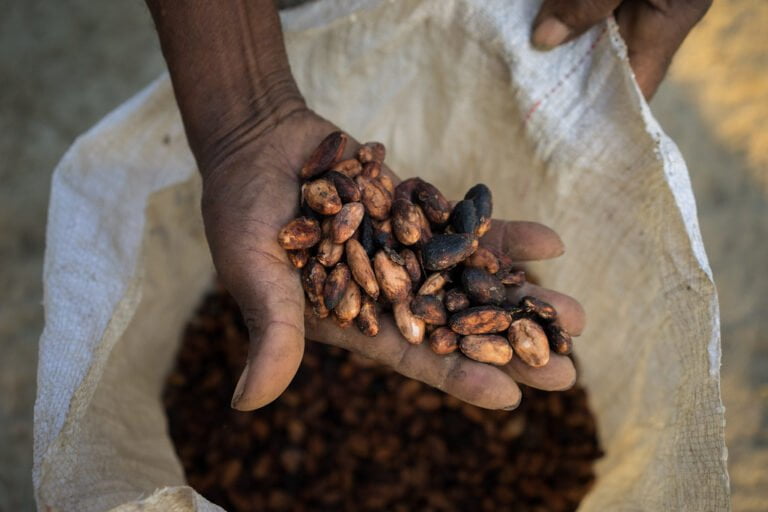Chocolate is one of the world’s most beloved treats, enjoyed by people of all ages and cultures. But have you ever stopped to consider where your chocolate comes from? Many of us are unaware of the significant impact that large scale chocolate production can have on the environment and society. Fortunately, small scale chocolate production is rising, providing consumers a more sustainable and socially responsible option. This article will delve into the details of small scale chocolate production and its many benefits.
Sustainable Cocoa Farming
The journey to sustainable chocolate production begins at cocoa farms. Small-scale cocoa farms are typically family-owned and operated, focusing on maintaining the health of the land and using sustainable farming methods. These methods include intercropping, which involves planting cocoa trees alongside other crops to increase biodiversity and reduce the need for pesticides and fertilizers. This approach has the added benefit of providing additional sources of income for farmers, allowing them to grow other crops alongside cocoa.

Another critical component of sustainable cocoa farming is ensuring fair and equitable wages for workers. Small-scale cocoa farms often prioritize reasonable labor practices, with many adhering to organic and proper trade certifications. These certifications assure consumers that the cocoa they purchase is grown and harvested using ethically and sustainably.
Reducing Carbon Footprint
In addition to sustainable farming practices, small scale chocolate production has a smaller carbon footprint than large-scale production. This is because small scale chocolate makers often source their cocoa from local farmers, reducing transportation emissions. Furthermore, smaller chocolate makers typically use more energy-efficient equipment, reducing their energy consumption.
Challenges of Small Scale Chocolate Production
Despite the numerous benefits of small scale chocolate production, some challenges must be addressed. One of the most significant challenges is the cost of production. Small scale chocolate makers often pay a premium for high-quality cocoa, which can increase the cost of their products. Additionally, small-scale production can limit the volume of chocolate produced, making it challenging to meet demand.
Another challenge is access to resources and technology. Small scale chocolate makers may not have access to the same resources and technology as large-scale producers, which can limit their ability to innovate and improve their products.

Social Responsibility
Small-scale chocolate production also positively impacts the communities where the cocoa is grown. By working directly with local farmers, chocolate makers can help improve these communities’ livelihoods. In addition to providing fair wages, small scale chocolate makers often invest in local infrastructure and education programs. These investments can significantly impact access to education and healthcare and create new economic opportunities.
The Future of Small Scale Chocolate Production
Consumers prioritize sustainability and social responsibility, so small-scale chocolate production is poised for growth. However, for this approach to be successful, small-scale chocolate makers must address the challenges of cost and production volume. By working collaboratively with cocoa farmers and investing in sustainable practices, small scale chocolate production can continue to provide delicious and ethical chocolate for consumers.
Conclusion
Small-scale chocolate production has a significant impact on sustainability and social responsibility. From sustainable cocoa farming to reducing carbon footprints, small-scale chocolate makers are positively impacting the environment and society. By addressing the challenges and investing in sustainable practices, small-scale chocolate production can continue to provide sweet and ethical treatment for consumers. So the next time you indulge in a chocolate bar, consider choosing one that has been sustainably and socially responsibly produced.
FAQs
Q: What is small-scale chocolate production? A: Small-scale chocolate production is the process of making chocolate on a small scale, often using sustainable and socially responsible practices. This approach typically involves sourcing cocoa from local farmers and using small-batch production methods.
Q: What are the benefits of small scale chocolate production? A: Small-scale chocolate production has numerous benefits, including sustainable farming practices, reducing carbon footprints, and supporting local communities. Small-scale chocolate makers often prioritize fair labor practices and invest in local infrastructure and education programs.
Q: How does small-scale chocolate production impact the environment? A: Small-scale chocolate production has a smaller carbon footprint than large-scale production. This is because small-scale chocolate makers often source their cocoa from local farmers, reducing transportation emissions. Additionally, smaller chocolate makers typically use more energy-efficient equipment, reducing their energy consumption.
Q: How does small-scale chocolate production impact local communities? A: Small-scale chocolate production can positively impact the communities where the cocoa is grown. By working directly with local farmers, chocolate makers can help improve these communities’ livelihoods. This is often achieved by providing fair wages, investing in local infrastructure and education programs, and creating new economic opportunities.
Q: What are the challenges of small-scale chocolate production? A: Small-scale chocolate production can be challenging due to the cost of production and limited production volume. Small-scale chocolate makers often pay a premium for high-quality cocoa, which can increase the cost of their products. Additionally, small-scale production can limit the volume of chocolate produced, making it challenging to meet demand.
Q: Is small scale chocolate production more expensive than large-scale production? A: Small-scale chocolate production can be more expensive than large-scale production due to the premium cost of high-quality cocoa and limited production volume. However, many consumers are willing to pay a premium for ethically and sustainably produced chocolate.
Q: How can consumers support small-scale chocolate production? A: Consumers can support small-scale chocolate production by purchasing chocolate from local makers, seeking out fair trade and organic certifications, and educating themselves about the impact of their purchases. By choosing sustainable and socially responsible chocolate, consumers can help support small-scale chocolate makers and positively impact the environment and society.
